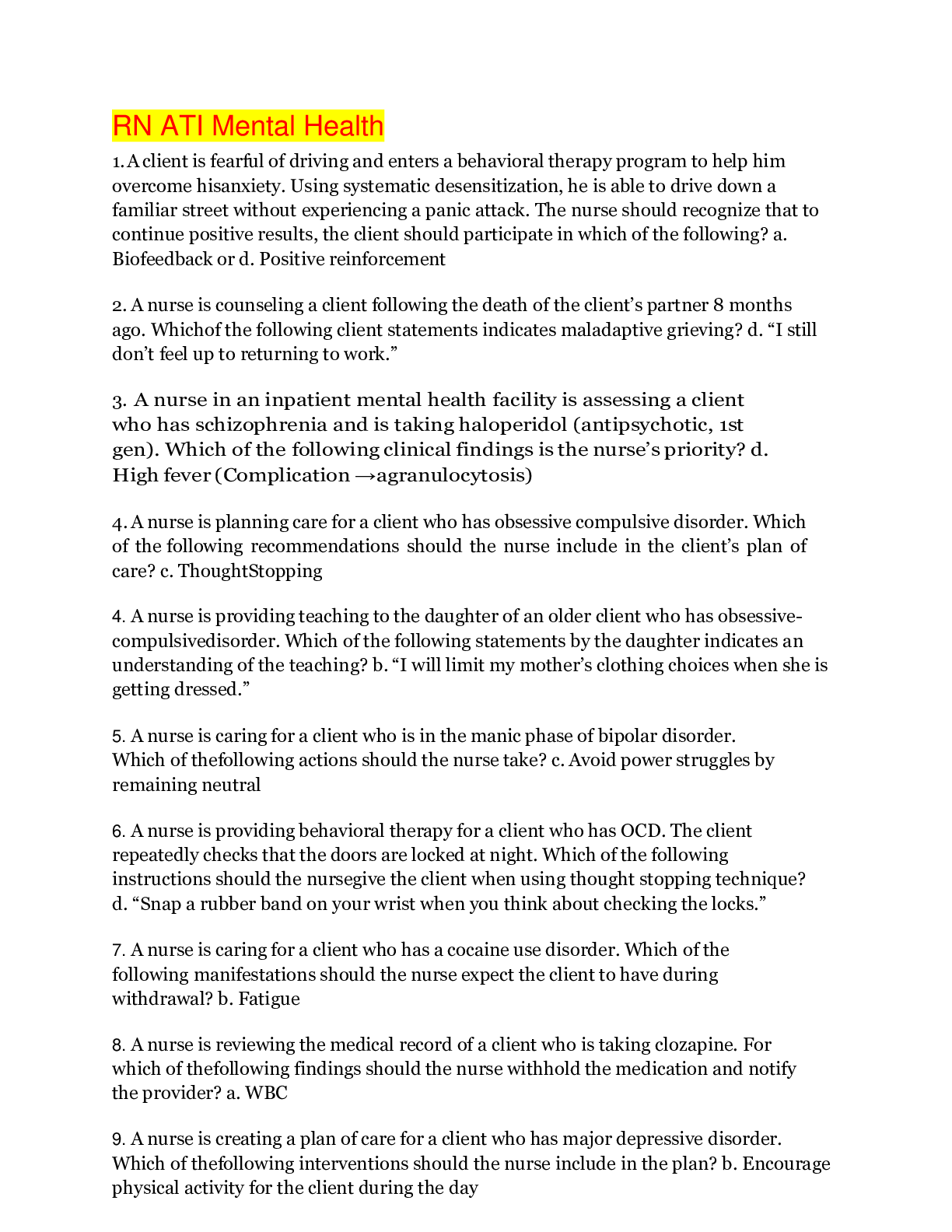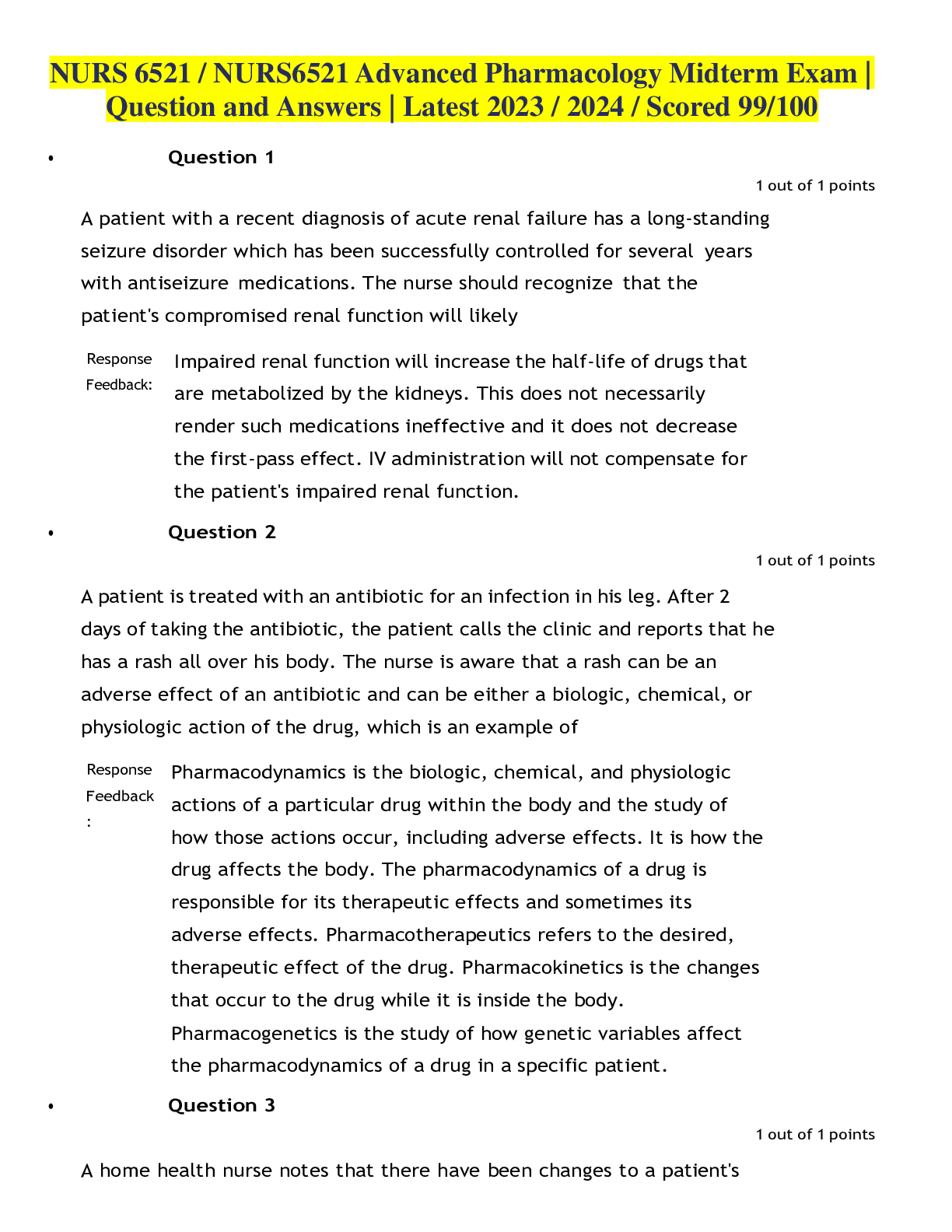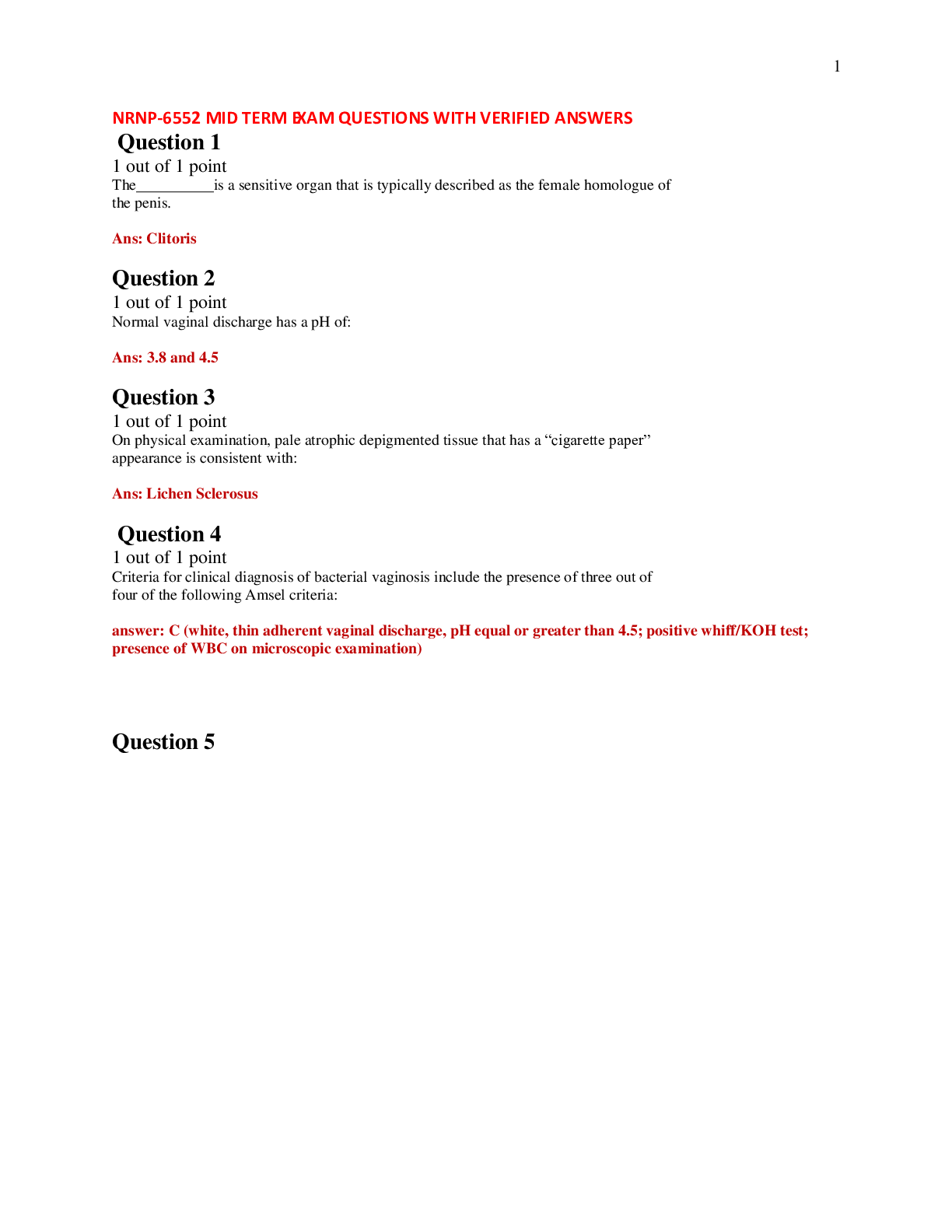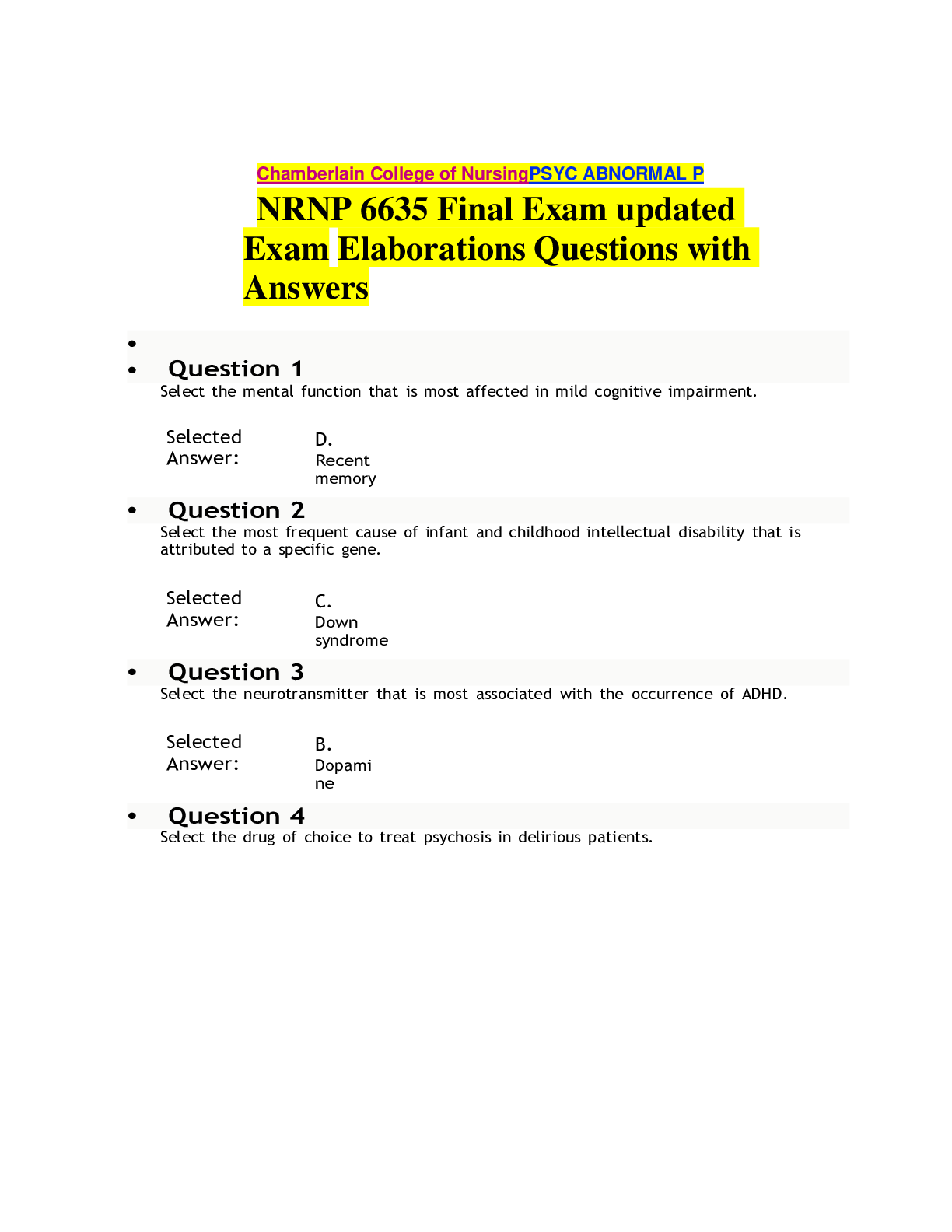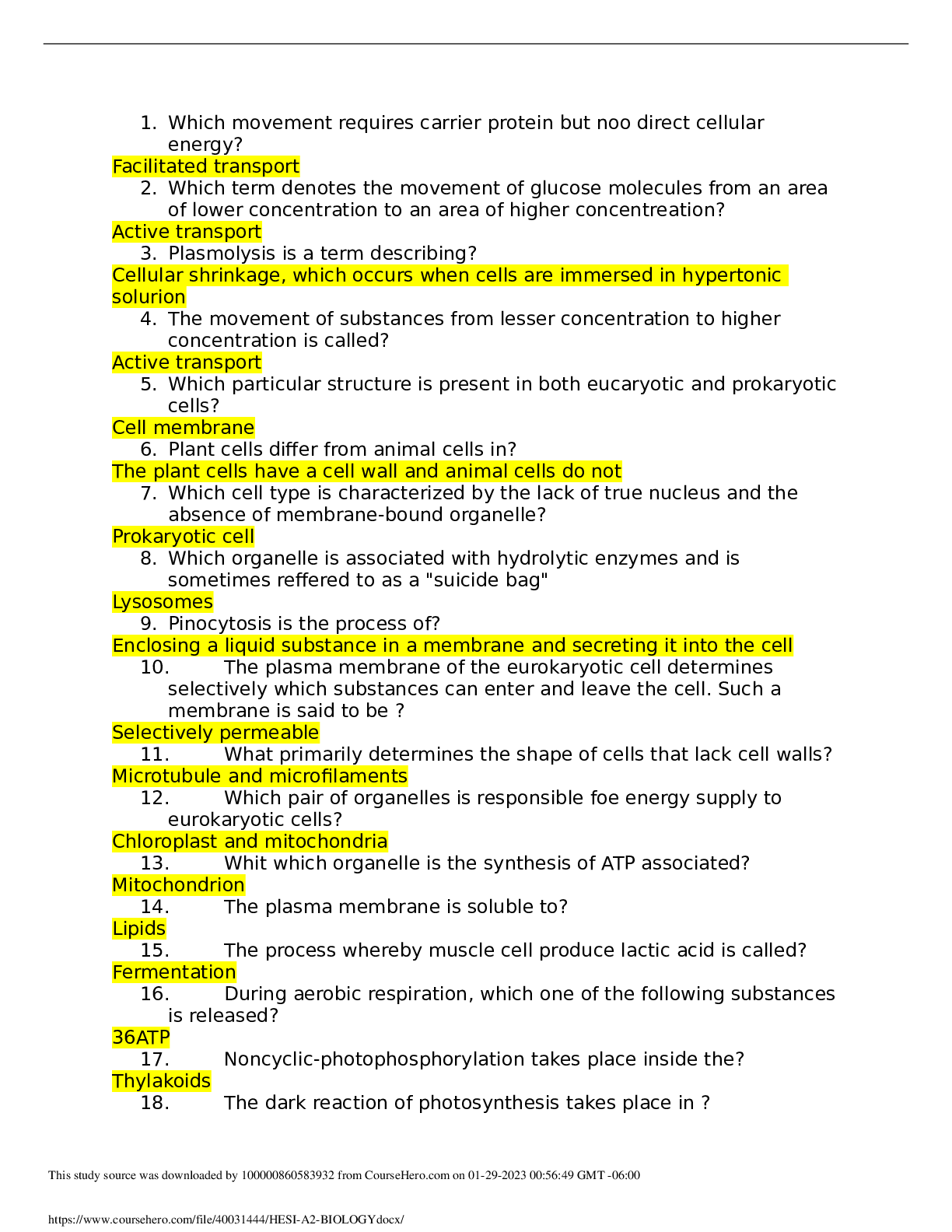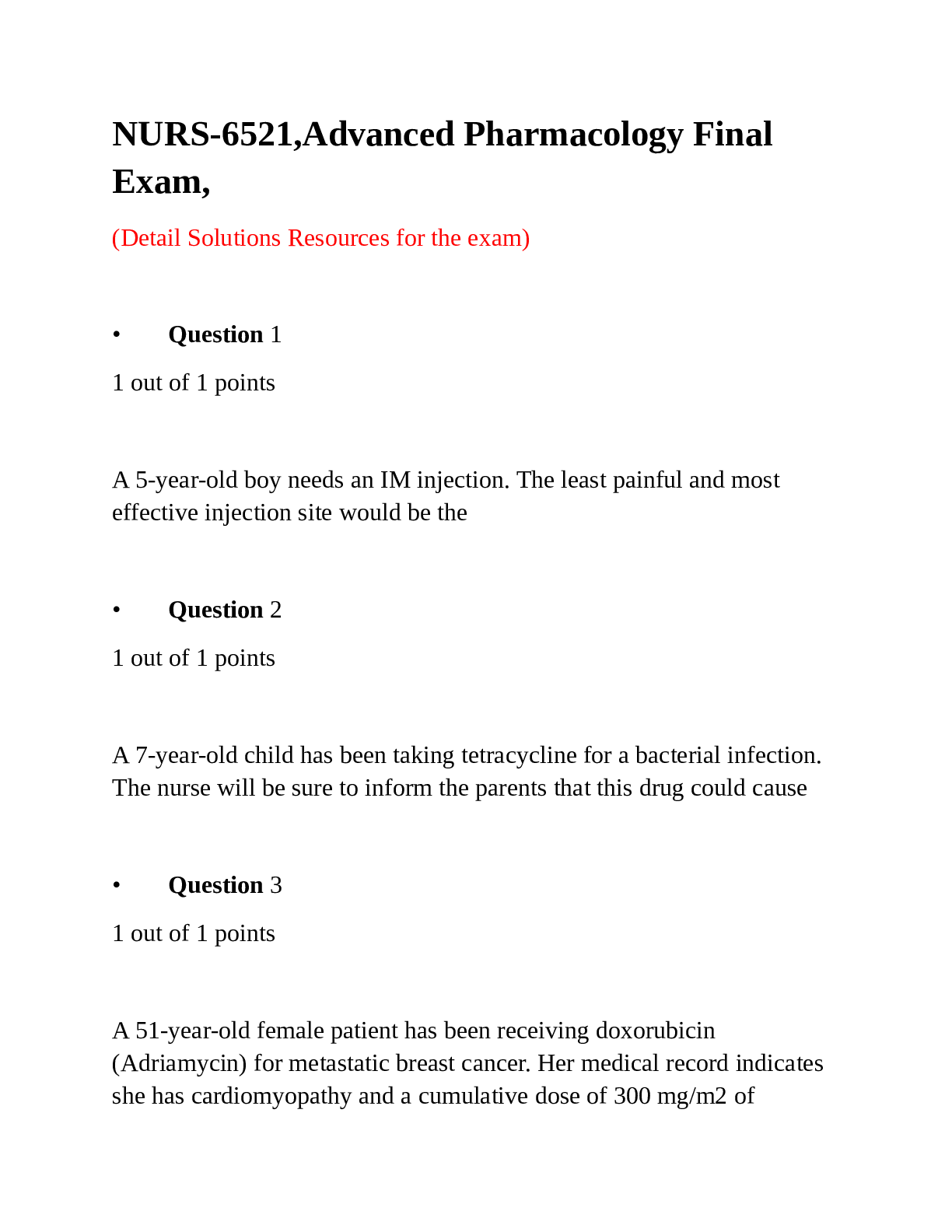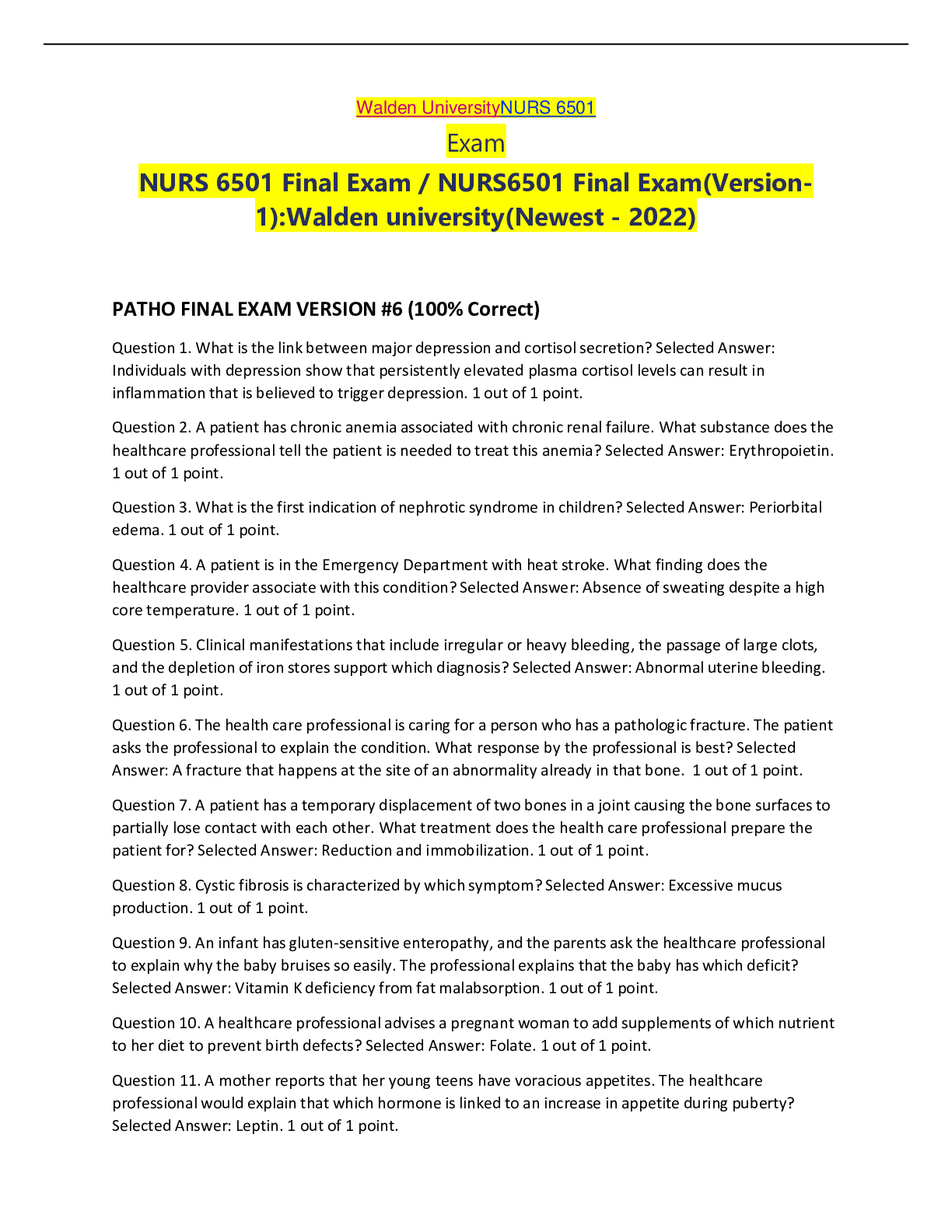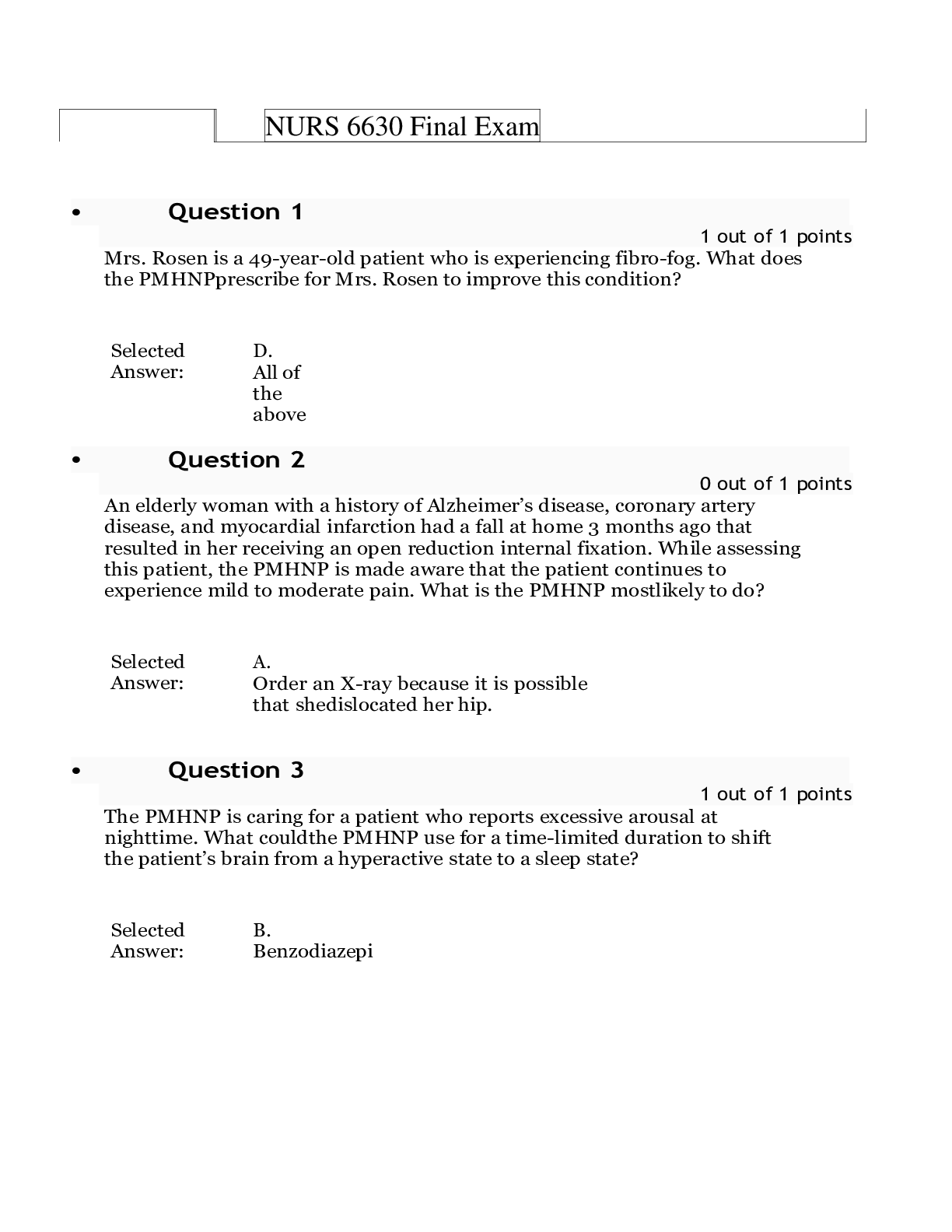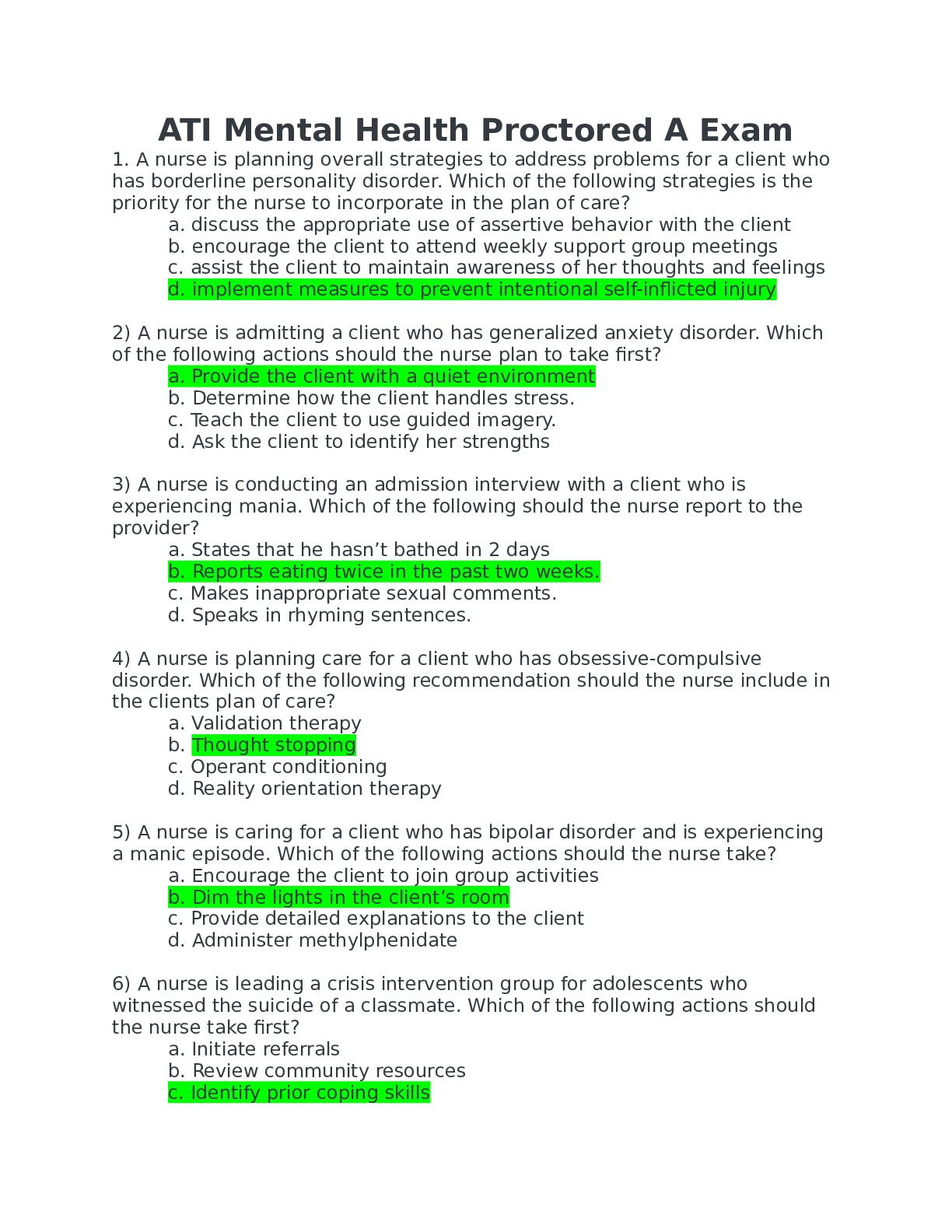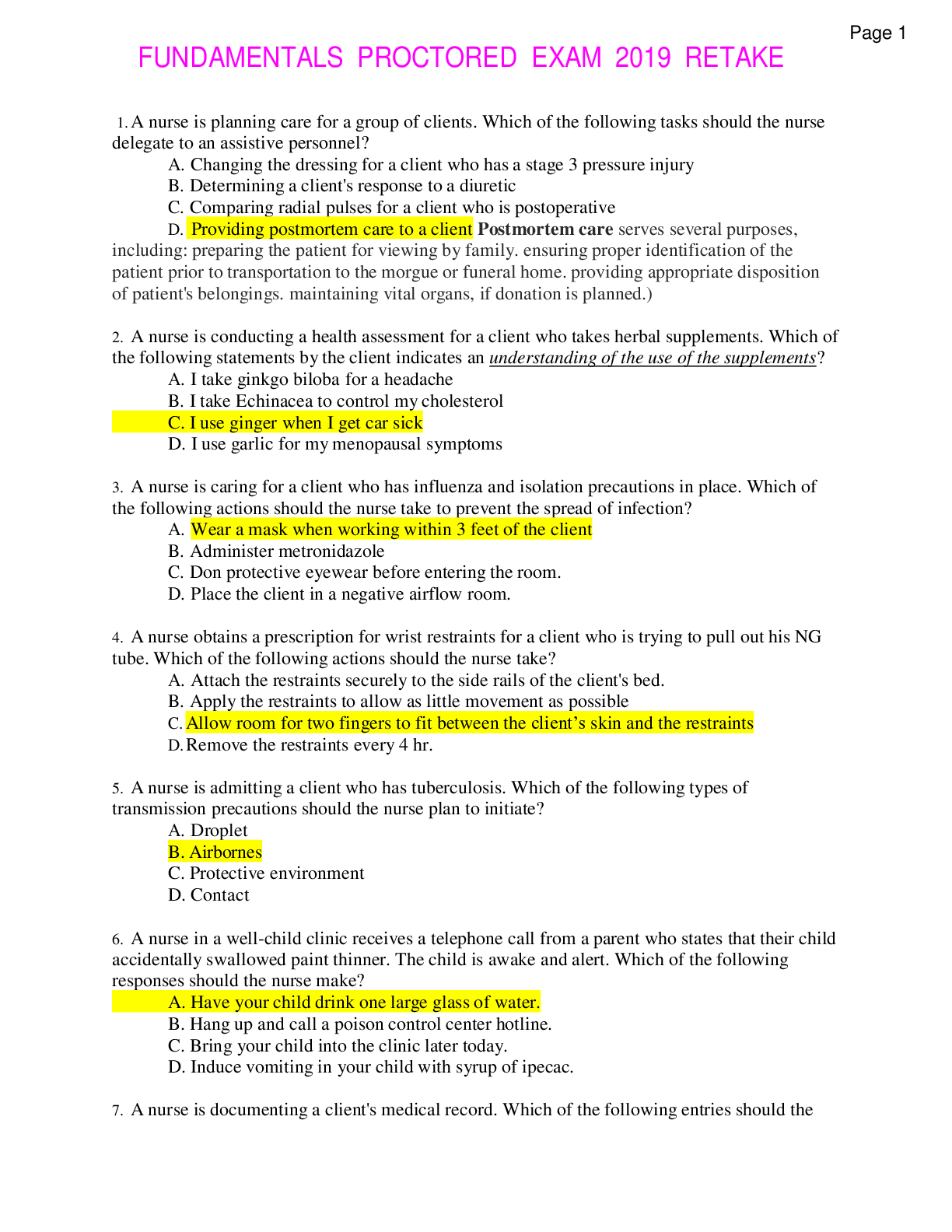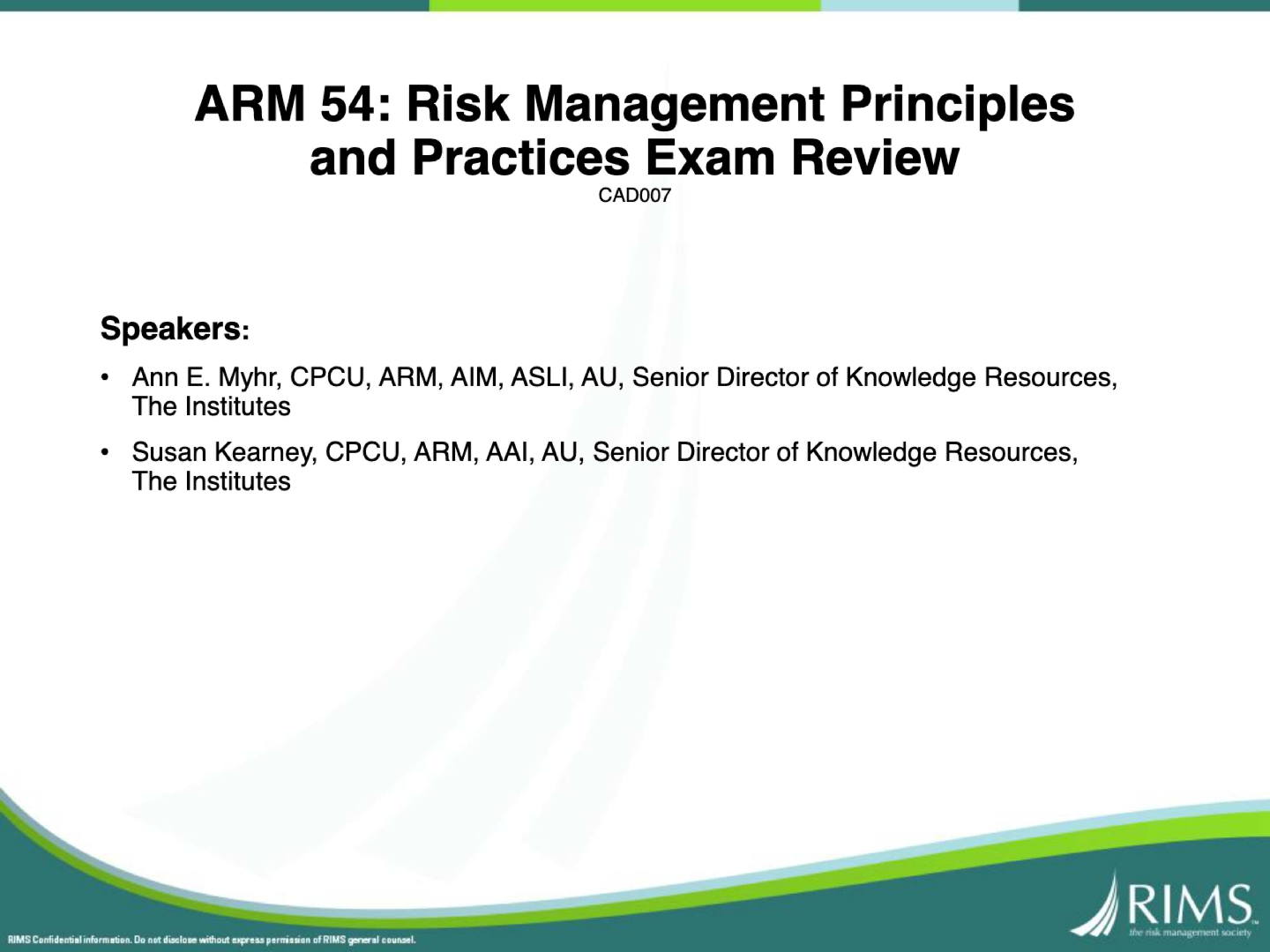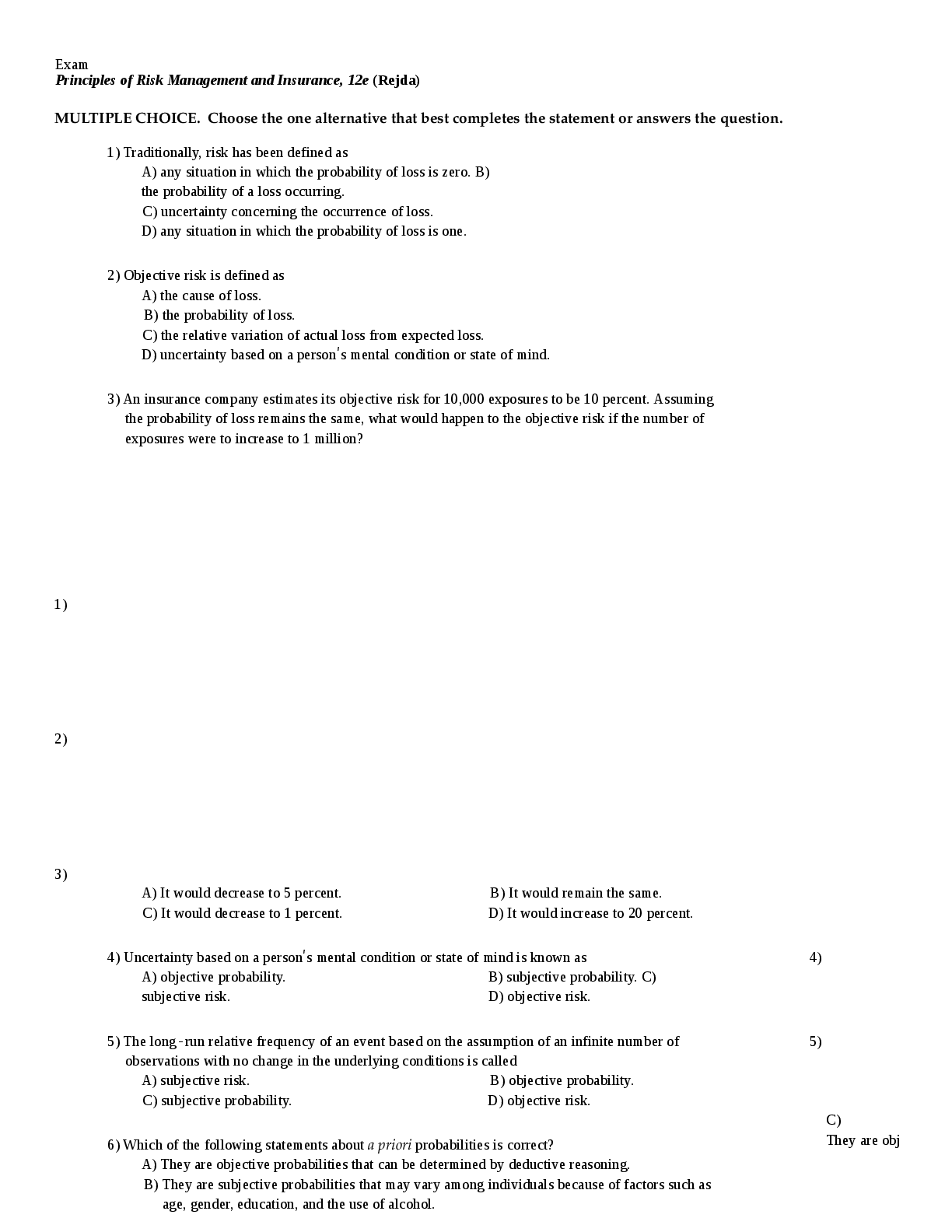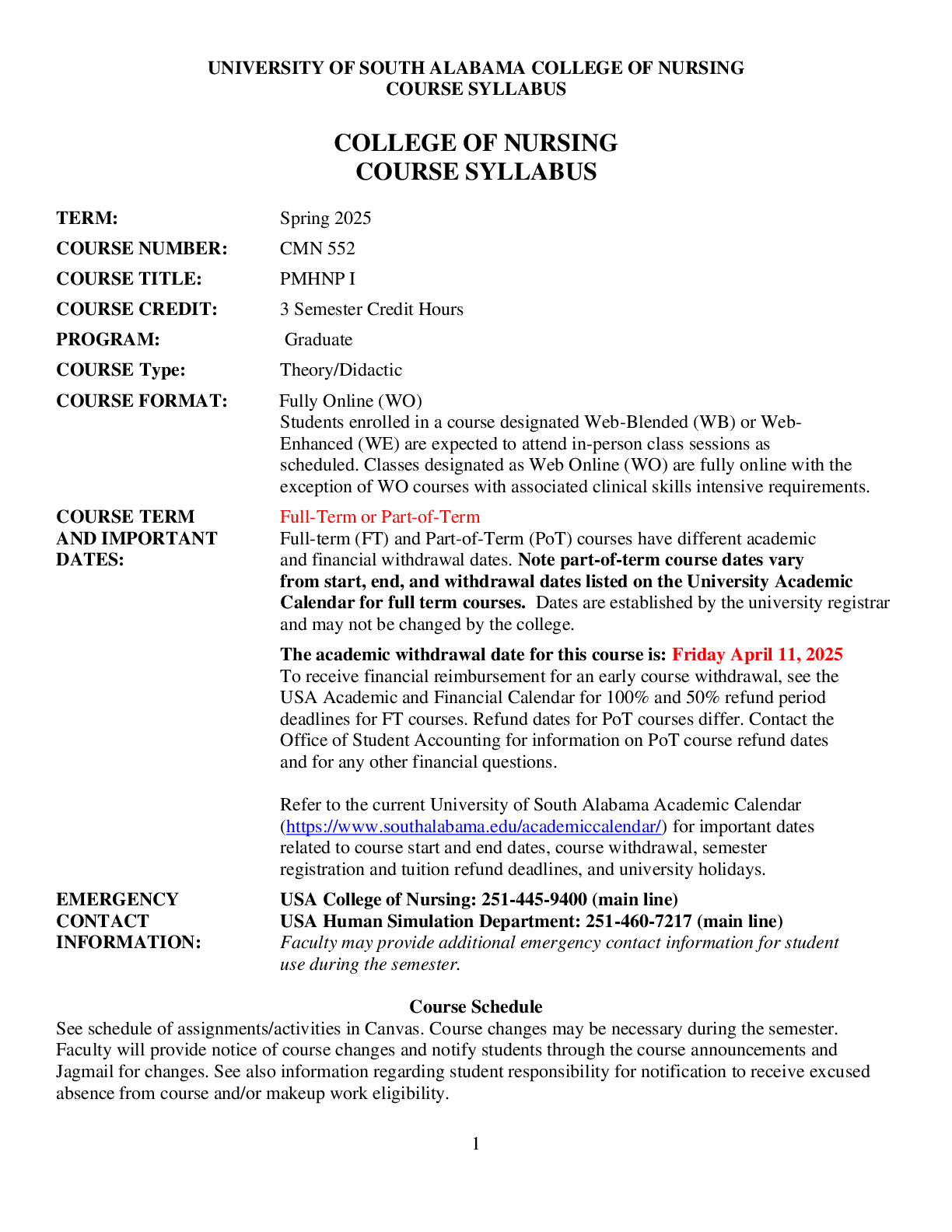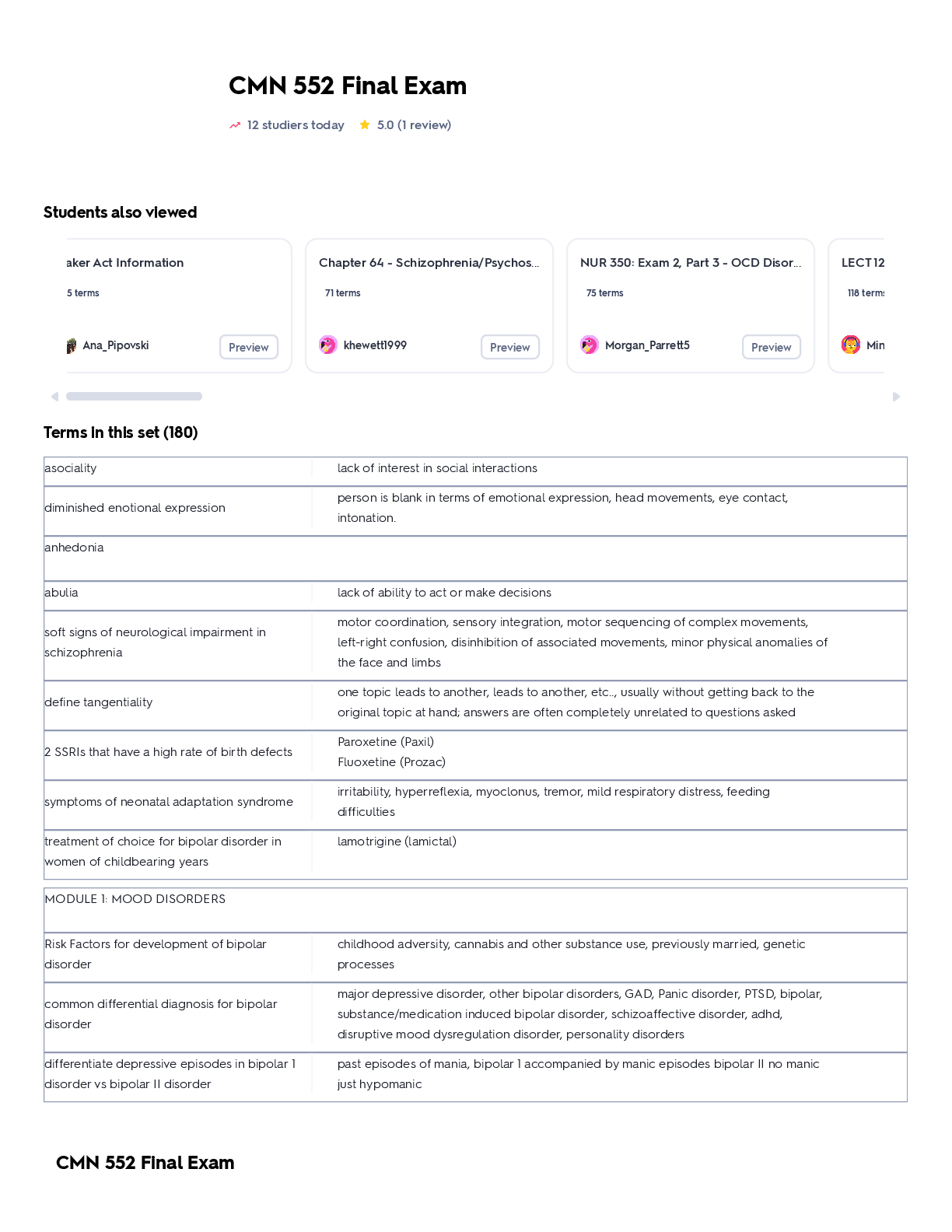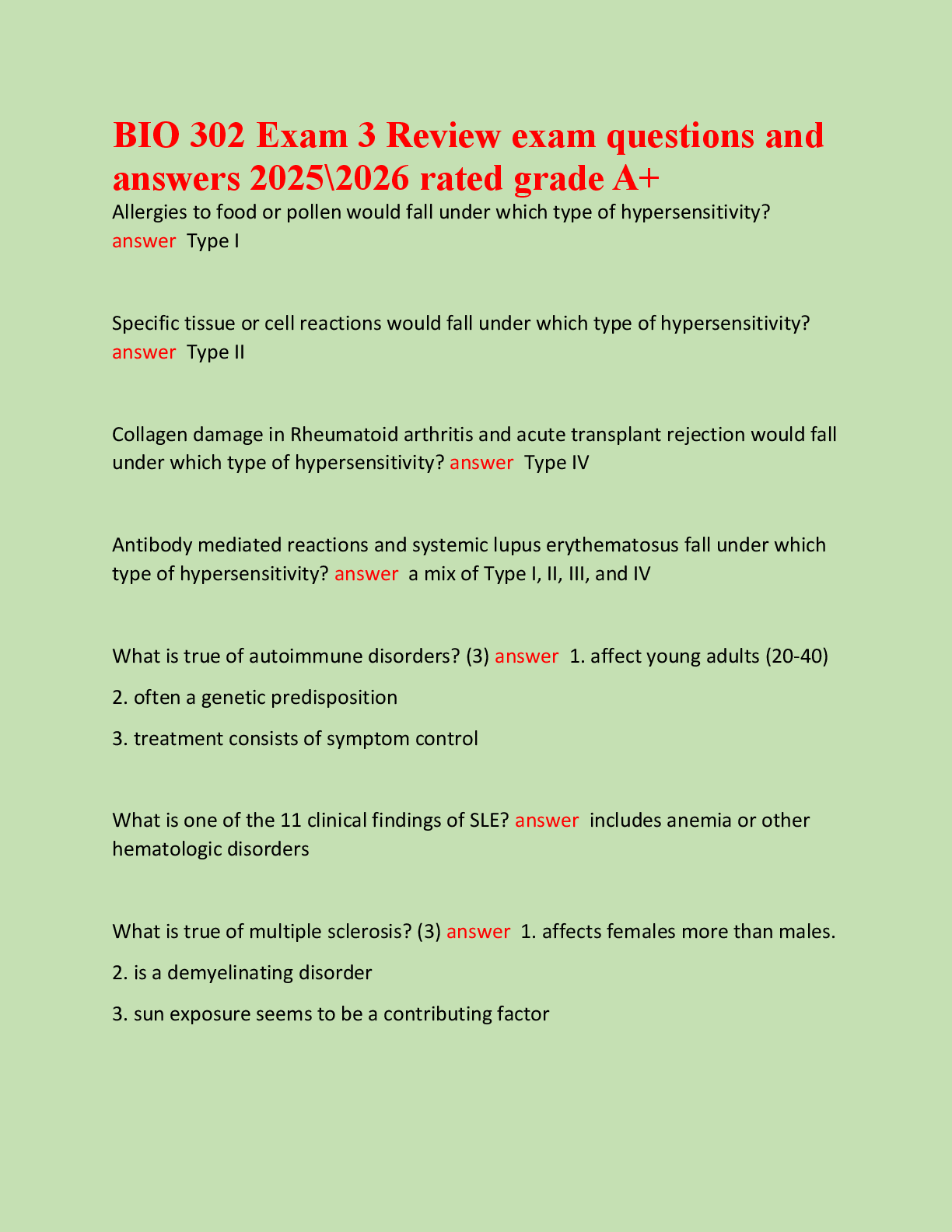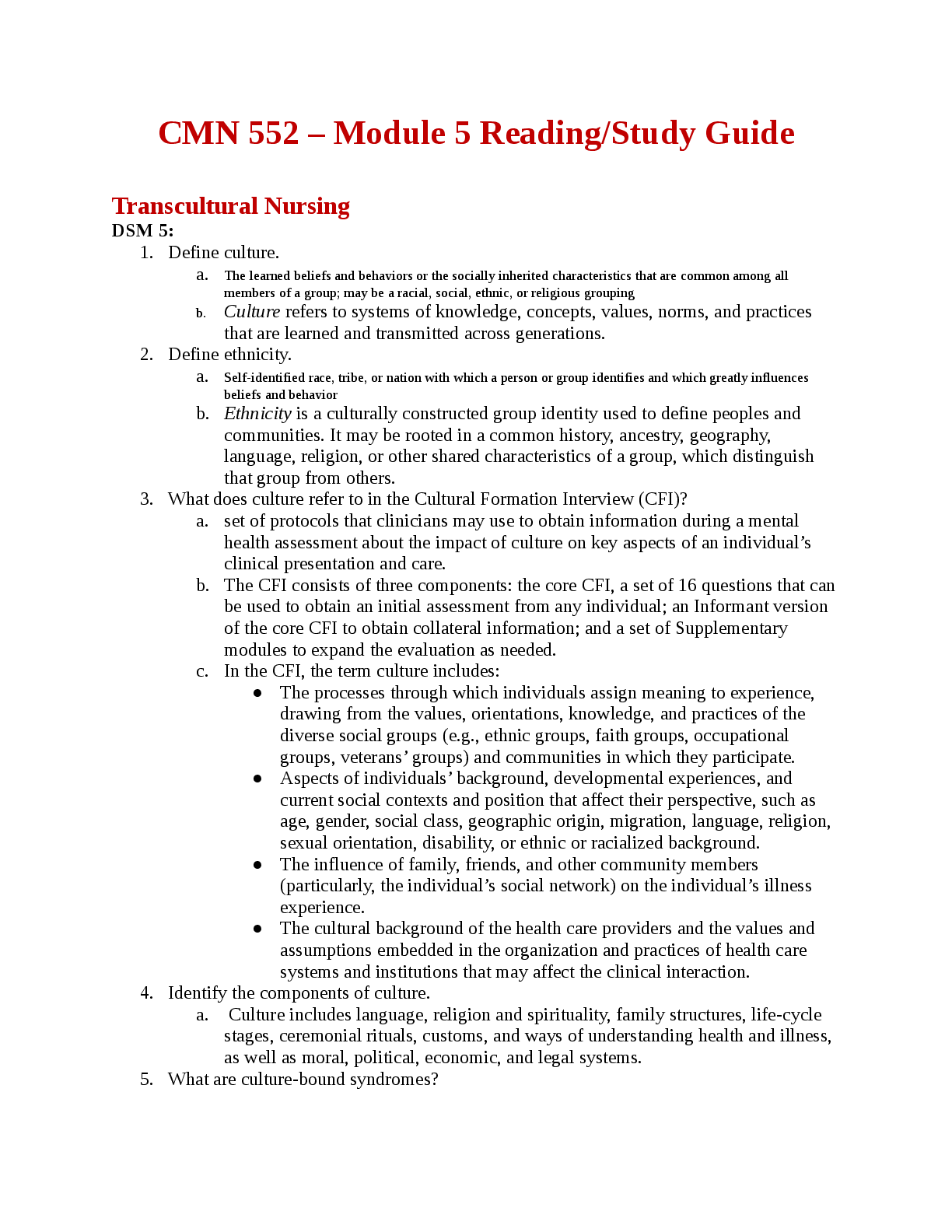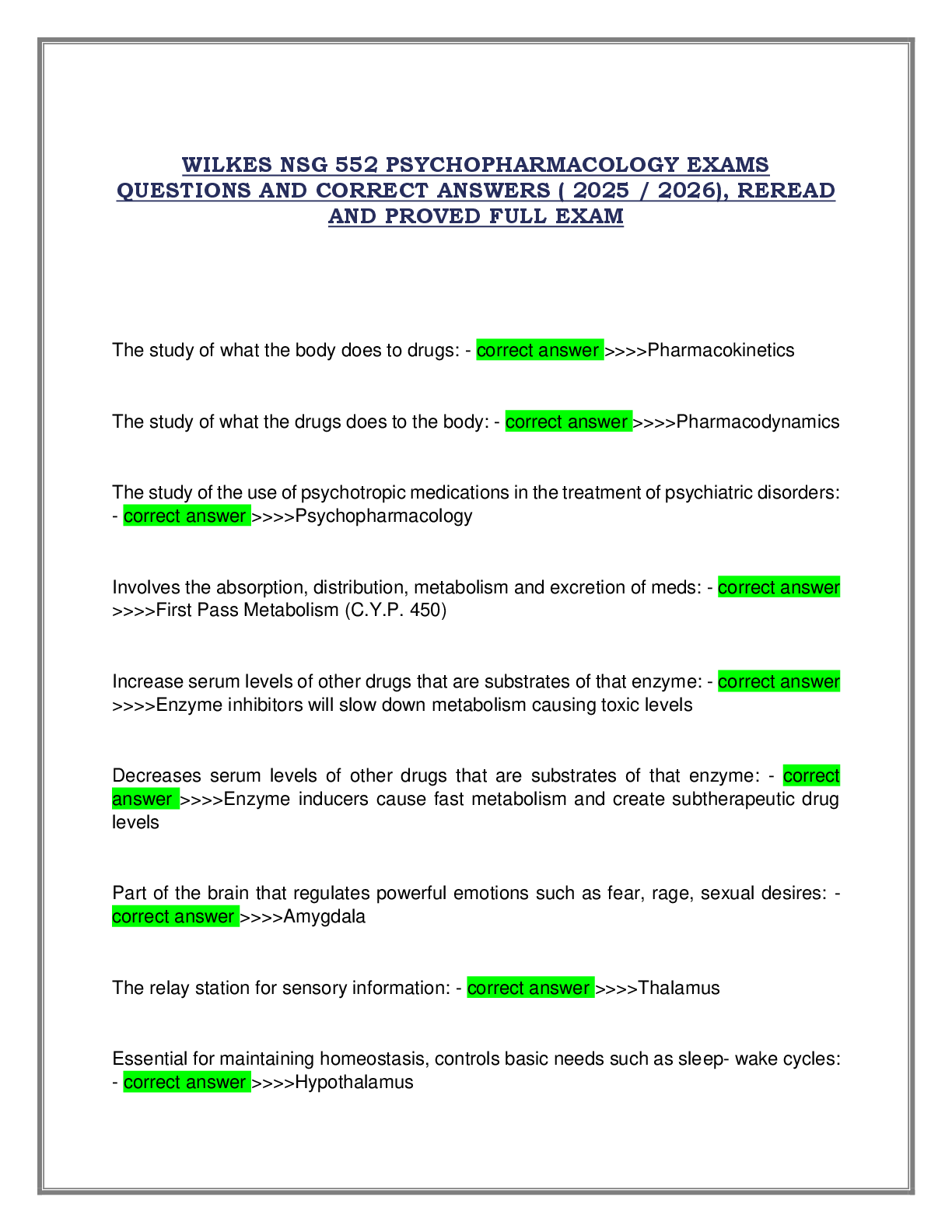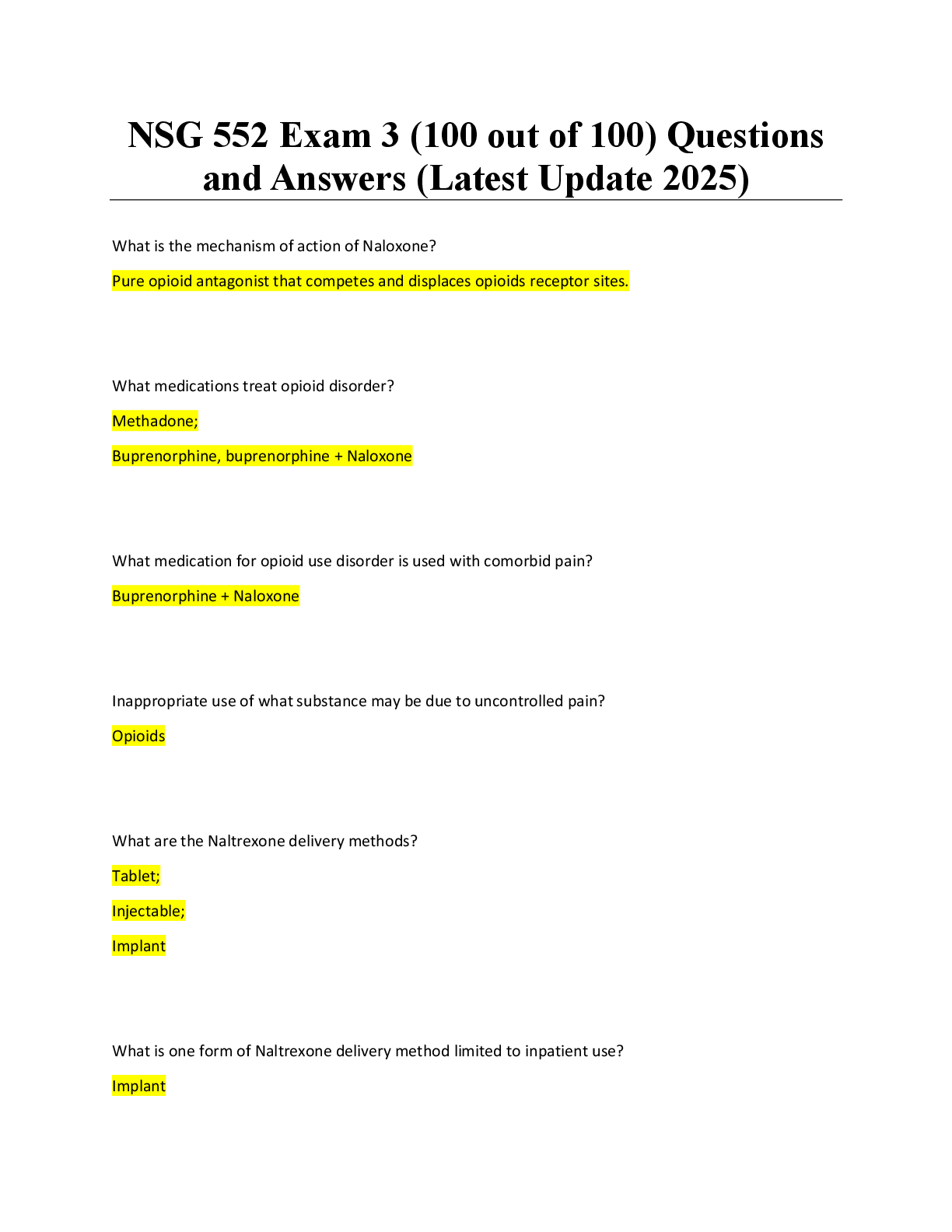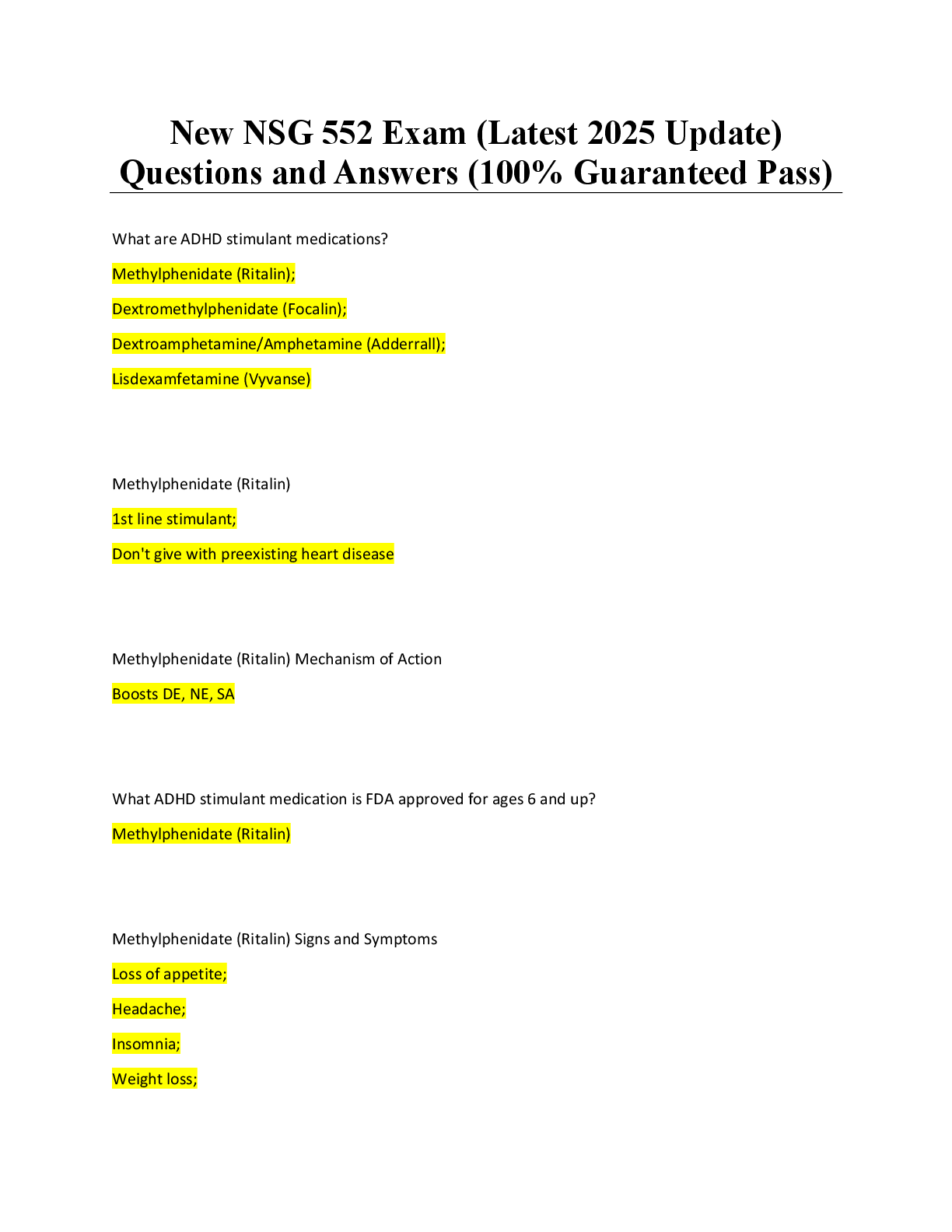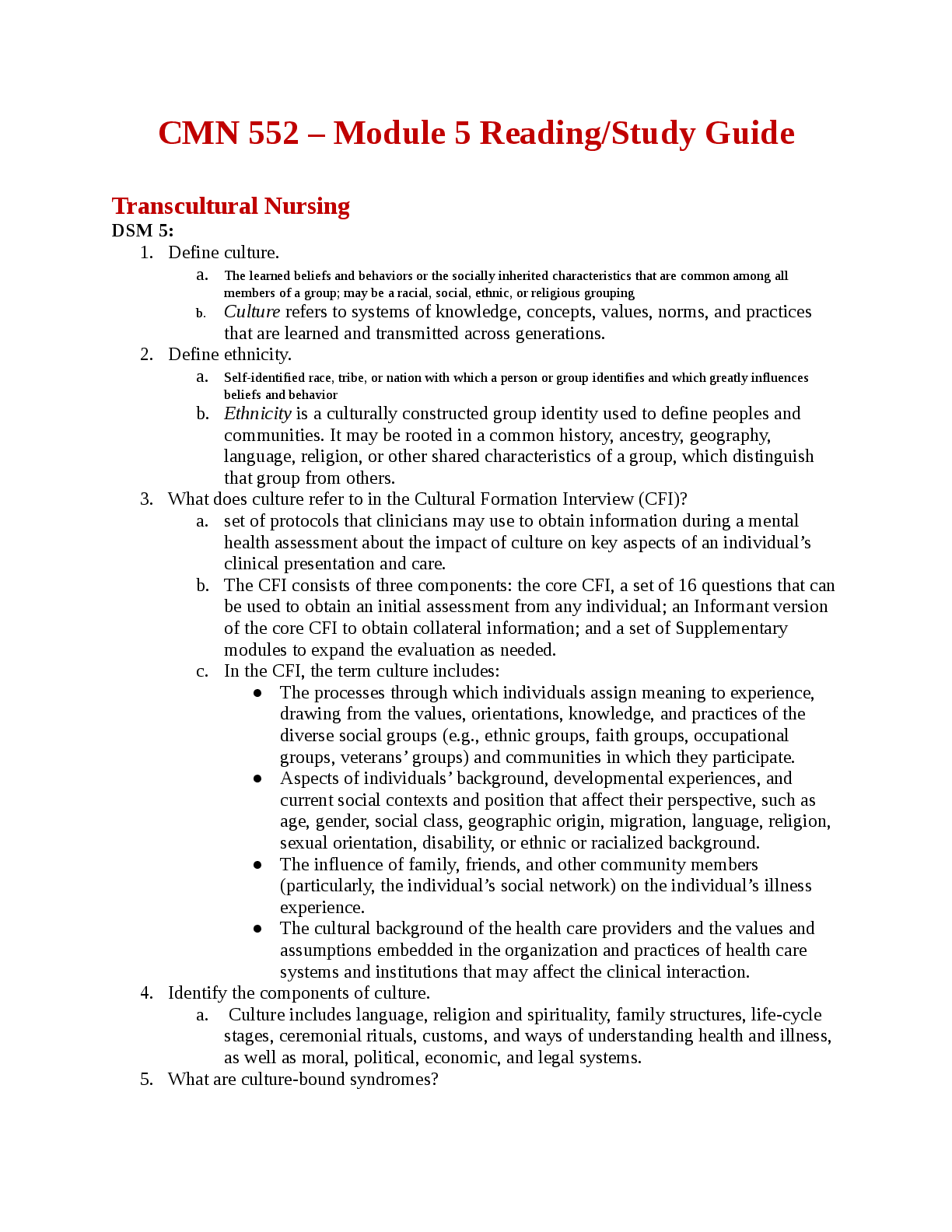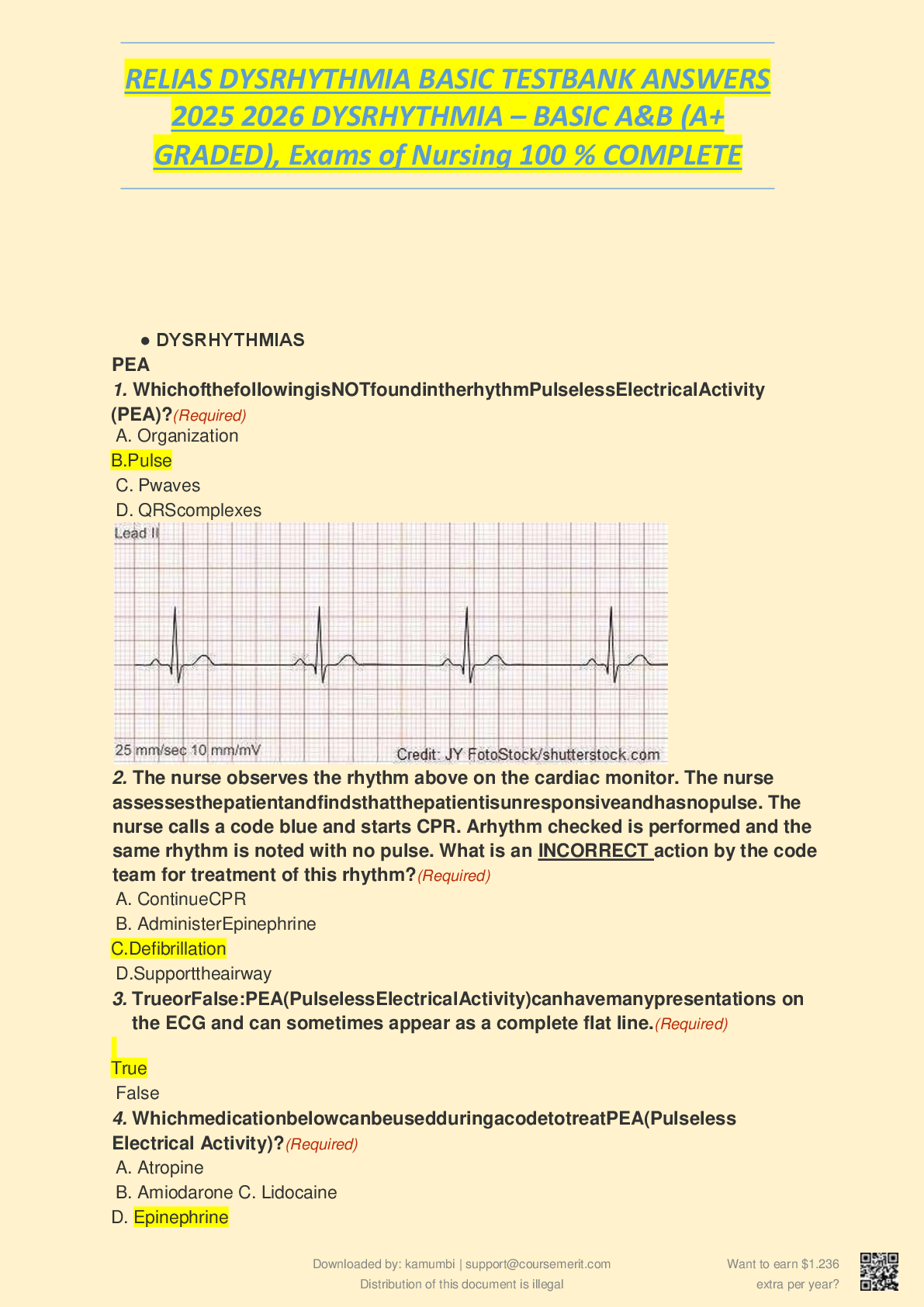Antibiotics
Review terminology:
- selective toxicity—is defined as the ability of a drug to injure a target cell or target organism without injuring other cells or organisms that are in intimate contact with the ta
...
Antibiotics
Review terminology:
- selective toxicity—is defined as the ability of a drug to injure a target cell or target organism without injuring other cells or organisms that are in intimate contact with the target. As applied to antimicrobial drugs, selective toxicity indicates the ability of an antibiotic to kill or suppress microbial pathogens without causing injury to the host. Selective toxicity is the property that makes antibiotics valuable. pp651 (in other words, if antibiotics were as harmful to the host as they are to infecting organisms- these drugs would have no therapeutic utility.
3 examples of how to achieve selective toxicity these include:
1. Disruption of the Bacterial Cell Wall
• Unlike mammalian cells, bacteria are encased in a rigid cell wall. The protoplasm within this wall has a high concentration of solutes, making osmotic pressure within the bacterium high. Several families of drugs such as penicillins and cephalosporins weaken the cell wall and, hence, promote bacterial lysis. Because mammalian cells have no cell wall, drugs directed at this structure do not affect humans.
2. Inhibition of an Enzyme Unique to Bacteria
• The sulfonamides represent antibiotics that are selectively toxic because they inhibit an enzyme critical to bacterial survival but not to our survival. Specifically, sulfonamides inhibit an enzyme needed to make folic acid, a compound required by all cells, both mammalian and bacterial. Because we can use folic acid from dietary sources, sulfonamides are safe for human consumption. In contrast, bacteria must synthesize folic acid themselves, because unlike us, they cannot take folic acid from the environment hence, in order to meet their needs, bacteria first take up para-aminobenzoic acid (PABA), a precursor of folic acid and then convert the PABA into folic acid. Sulfonamides block this conversion. Because mammalian cells do not make their own folic acid, sulfonamide toxicity is limited to microbes.
3. Disruption of Bacterial Protein Synthesis
• In bacteria, as in mammalian cells, protein synthesis is completed by ribosomes. However, bacterial and mammalian ribosomes are not identical, and hence we can make drugs that disrupt function of one but not the other. As a result, we can impair protein synthesis in bacteria while leaving mammalian proteins synthesis untouched.
- culture and sensitivity test pp. 658
o The quickest, simplest and most versatile technique for identifying microorganisms is microscopic examination of Gram-stained preparation- this can be obtained by obtaining samples for examination such as exudate, sputum, urine, blood, and other bodily fluids.
o Another new method known as Polymerase chain reaction (PCR) test or nucleic acid amplification test, can detect very low titers of bacteria and viruses. Testing is done by using an enzyme—either DNA polymerase or RNA polymerase. Microbes that can be identified with a PCR test include: C. Difficile, S. aureus, mycobacterium tuberculosis, neissseria gonorrhoeae, chlamydia trachomatis, and helicobacter pylori, and important viral pathogens such as: HIV (human immunodeficiency virus). Compared with Gram-staining, PCR test are both more specific and more sensitive.
[Show More]



